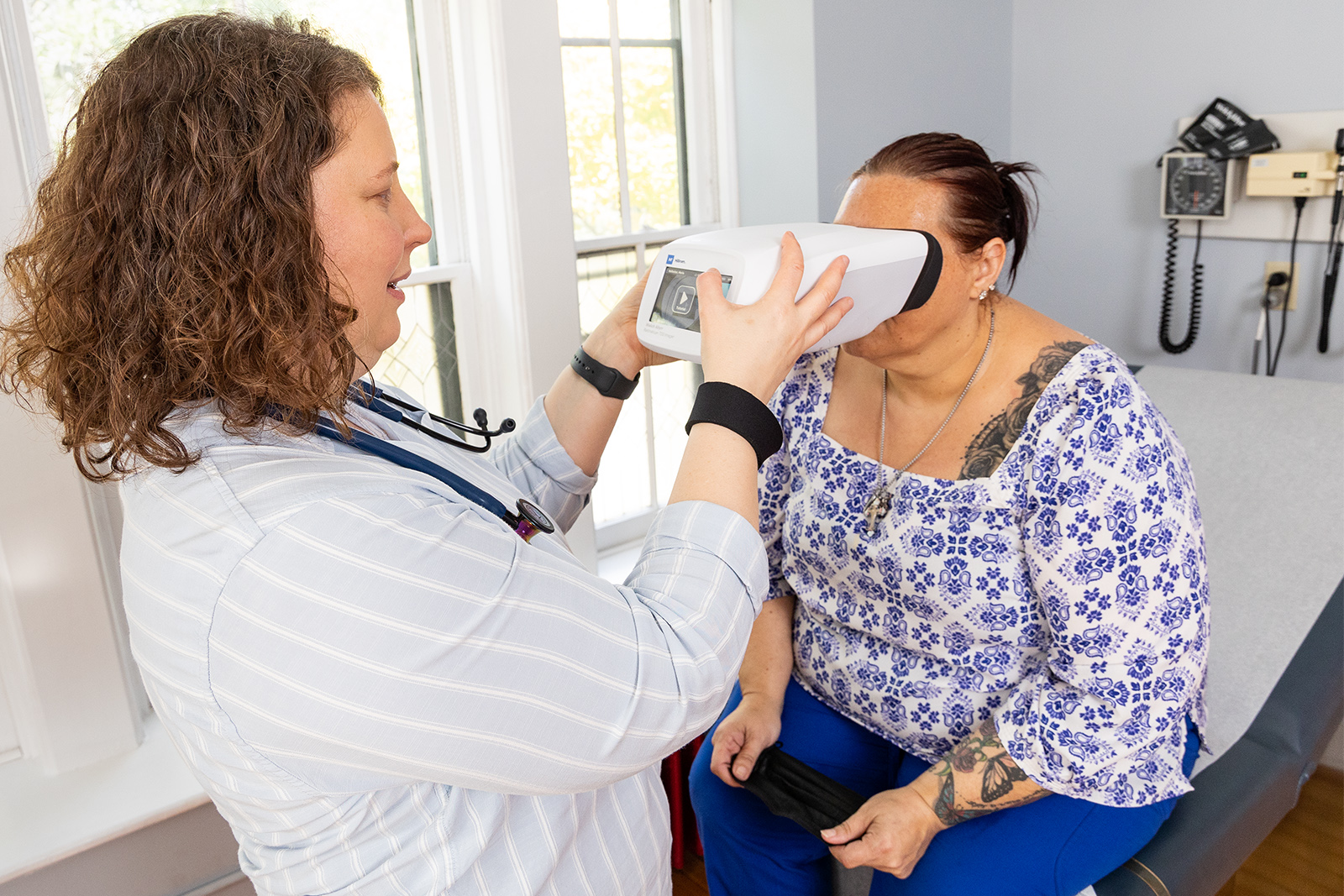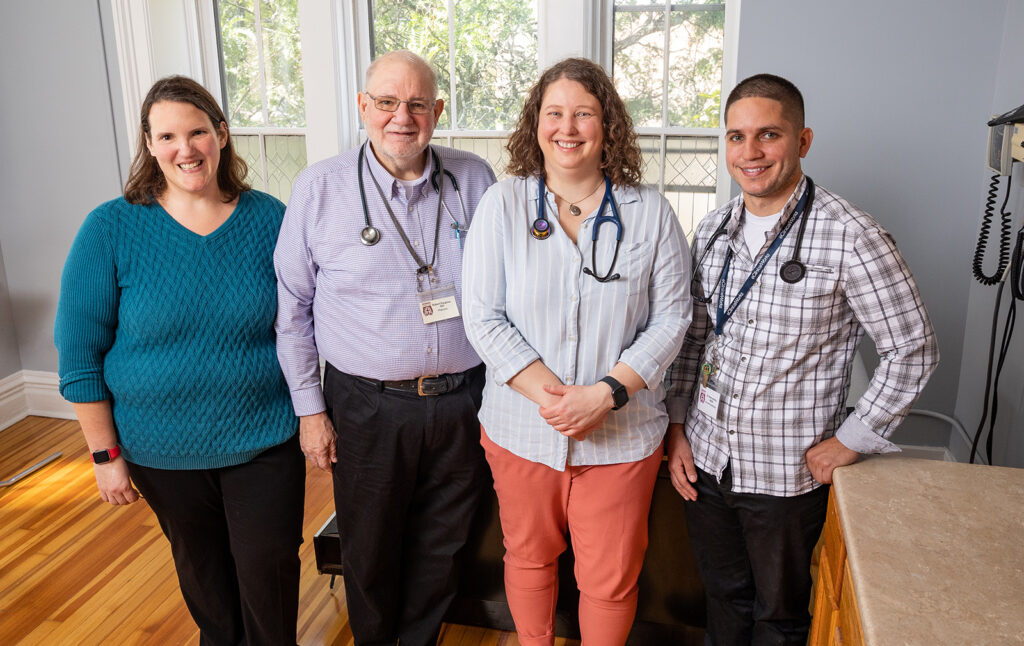How in-house retinal exams can increase access to care for your patients

“Some patients don’t even know that they’re supposed to have an annual retinal exam,” says family practitioner Rachel Siffring, DNP, FNP (seen above). “I’ll say, ‘Do you have an extra ten minutes? We’ll do that now.’”
Siffring is part of the dedicated medical staff at Koinonia Primary Care on Clinton Avenue in Albany, where easy and effective use of the handheld RetinaVue funduscopic camera has allowed the practice to significantly close gaps in care for patients with diabetes, as well as alert patients to early signs of the disease or other conditions.
“It really helps,” she says. “Our only option before was to just tell a patient they needed to go to an ophthalmologist, or I would help them try and find a location. It wasn’t nearly as effective.”
Because retinopathy has no symptoms during the early stages of diabetes, detection with an annual retinal exam is critical. But instead of simply encouraging patients to get this important exam from an eye care specialist, Koinonia has made the test as accessible as possible for their patients by using the RetinaVue camera as part of wellness visits, where appropriate.
“The more we can do for this particular population when they’re here, the more care they get in general,” explains Dr. Bob Paeglow, Koinonia founder and medical director. “We serve a very marginalized population who have difficulty accessing medical care in general, for lots of reasons. My philosophy has always been that we need to get as close to a one-stop-shop for people who can’t or won’t access the appropriate care.”
Closing gaps in care
The NCQA HEDIS measure for Eye Exam for Patients with Diabetes specifies that patients 18 to 75 years of age with diabetes undergo either a dilated or retinal eye exam during the current measurement year or year prior. Funduscopic photography with the RetinaVue camera allows primary care and family practitioners to conveniently meet this measure by taking a picture of a patient’s retina and sending it to an ophthalmologist for review and interpretation.
Koinonia Primary Care performs these simple exams with the RetinaVue camera about two to three times a week, and the medical staff is convinced that the convenience of offering the test in-house has improved care for their patients.
“We have several patients who have been diagnosed with diabetic retinopathy and are now in the care of ophthalmologists,” says Siffring. “When you have these types of results early, you can tell patients, ‘This is what’s happening, this is where you’re going to be unless we do something in the next year or two for you.’”
Offering convenience to your patients
For more information on adding funduscopic photography to your practice, read our provider reference guide or reach out to the CDPHP physician engagement team at quality1@cdphp.com.

(left to right) Koinonia Practice Manager Corrie Paeglow, Dr. Bob Paeglow, Nurse Practitioners Rachel Siffring and Eliezer Hernandez
 The Daily Dose
The Daily Dose
Comments are closed.